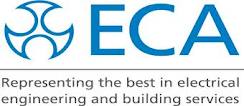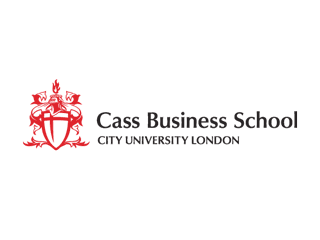
Showing all pages regarding senior management.
Women should not, like Jane Austen, be ‘quietly waiting in the wings’
Jane Austen is ‘quietly waiting in the wings’ according to Sir Mervyn King the outgoing governor of the Bank of England. He has been responding to criticisms that Winston Churchill would be replacing Elizabeth Fry on the £5 note and that women’s achievements on banknotes were therefore under-represented. Not to worry, says Mervyn, Jane Austen will be the new face on the £10 note in the not too distant future.
As a very big Jane Austen fan I am delighted that she is to be recognised in this way. She spent most of her life ‘quietly waiting in the wings’ and did not receive the acclaim she deserved as an author until long after her death. But as Sarah Churchwell (Professor of American Literature at the University of East Anglia) pointed out this week, Jane Austen will be the only woman (following Fry’s departure) out of six symbolic figures to be represented on England’s banknotes. This proportion pretty much reflects the level of women’s representation in other walks of life. For instance only 20% of board members in the UK are women. Why is it that women still have so little influence at the top?
Evidence suggests that having women on boards contributes positively to the company’s bottom line. According to Eversheds, an international law firm, the world’s best performing companies tend to have a higher percentage of female directors. And a 2011 study by McKinsey found that European companies that had at least three women on their executive committees significantly outperformed their sector in terms of average return on equity.
Some blame the ‘old boys network’ for the lack of women directors, others suggest that, until more women make it to senior management positions, the talent pool for board positions will remain relatively small. To speed up the process the European Commission adopted a European Union law in January this year which aims to attain a 40% “objective” of women in non-executive board positions in publicly listed companies by 2020. Some countries are introducing quotas in order to reach this target. Critics of the quota approach argue that this is ‘tokenism’ and that more radical change is needed in the mind-set of the business community if sustainable and significant progress is to be achieved.
Whatever the reason it’s generally agreed that women could do better at putting themselves forward and seeking out board positions. They need to get themselves noticed, build their networks and put their hands up for new and challenging opportunities. Jane Austen may still be ‘quietly waiting in the wings’ – the rest of us don’t have too.
See JPA’s Top Ten Tips for Getting a Non-Executive Position
What Margaret Thatcher did not do for women
I was twenty-two when Margaret Thatcher led the Conservative party to victory in the 1979 general election. I opposed her politics and protested against many of her reforms including the destruction of the miners and the poll tax. I never admired her and certainly never considered her a role model.
Now as I reflect on her life in politics and her legacy as the first female prime minister I remain convinced that she did nothing to further the cause of women in politics or in business. Still only 22 per cent of UK MPs are women and only 22 per cent of senior management positions are held by women. Margaret Thatcher might have demonstrated that it was possible to shatter the glass ceiling but she failed to help other women into leadership roles. In fact it is said that she was a perfect example of “Queen Bee” syndrome – she did very well and enjoyed her position of power, but she did not particularly want other women to succeed too.
However, although it pains me to say it, I appreciate some of Margaret Thatcher’s leadership qualities. She was a strong and formidable leader in a male dominated environment. And unlike many women in managerial roles she cared not a jot about her own popularity. Being liked was not Margaret Thatcher’s concern. Rather she was driven entirely by her determination to reach the top and achieve her political goals. There is some evidence to suggest that women who make it to a senior position in business are perceived as less likeable than men in the same role (see the Stanford Business School experiment where the name of an entrepreneur in a business case study was changed from Howard to Heidi and instantly became less likeable to the class of students than the male version Stanford Case Study). Women at the top are often considered to be ‘aggressive’ where males displaying the same behaviour are simply seen as “assertive” or “confident”. And this perception of successful female leaders can lead women to be over anxious about their popularity.
I am not suggesting that women should be more arrogant and insensitive in order to succeed as leaders. A certain amount of empathy and emotional intelligence is important and helps leaders to get the best out of people. And arguably, it was Margaret Thatcher’s refusal to acknowledge public opinion or to listen to those around her that caused her downfall in the end. I am not advocating the “Margaret Thatcher style of leadership”. I hated her politics and values. But perhaps women would do well to take a very small leaf from Margaret Thatcher’s – try to care a little less about what others think of you.
Why diversity targets won’t help the Big Four
The spotlight appears to be on the big four accountancy firms as they struggle to address the lack of diversity in their partnerships. The domination of white men from elite universities continues in these firms with Ernst and Young, for example, reporting that just 17% of its 549 partners are women. Clearly the people occupying senior positions in these companies ought to more closely reflect the diversity of its client organisations and society as a whole – it makes good business sense quite apart from being seen as a progressive and fair employer. Yet the pressure to address current imbalances at the top suggests that some firms are placing more priority on the achievement of diversity targets than on the quality of their partners or the inherent causes of male-dominated workplaces.
Ernst and Young has announced that, within 3 years, at least a tenth of its new partners will be black or from other ethnic minorities. It has also pledged to make at least 30 per cent of its new partner appointments women in the same time frame. Such ambitions might be impressive but are surely misguided. Where are these senior women and ethnic minority partners going to come from? We know that most women entering management roles in the city tend to leave in their thirties or fail to achieve promotion to senior levels. Maternity breaks and child care responsibilities and are part of the explanation for this but there is also evidence that corporate culture discourages women from aspiring to senior management roles. Being a partner means long hours and the high stress involved makes it difficult for women to cope with the demands of work and family. On top of this, the male-dominated, performance-driven culture is off-putting to many highly capable young women.
Any company that is serious about achieving diversity at the top needs a long term talent management strategy. The aim should be to ensure that the firm’s organisational culture and policies reflect a genuine desire to engage, develop, support and promote talent – wherever it comes from. The desire to achieve diversity at senior levels in business should be welcomed, but the problem cannot be resolved overnight. A slavish and superficial focus on targets alone suggests that the top firms are paying lip service to what is a complex and more deep-seated issue.
Bradley Wiggins – lessons in teamwork
I enjoy a bit of sedentary cycling and have been known to jump on a Boris Bike. But I have never really taken much interest in cycling as a sport. Until now. It has been difficult to escape the excitement surrounding Bradley Wiggins and his Tour de France victory. When I began to understand more about how the race was one I realised that the real story was not so much about Bradley Wiggins but more about Team Sky. We can learn a lot from this extraordinary team and its achievement. And the lessons are just as important to business as they are to sport.
What I hadn’t realised (apologies to cycling enthusiasts who know all this) is that Bradley’s win did not come out of nowhere. It was part of a masterful and finely executed plan in which each member of Team Sky played a crucial part. What is most striking about the story is that any member of the team could (in theory) have been the winner. But the plan was to achieve a win for the team by supporting Bradley’s progress through the course, employing tactics to boost his performance at every stage, thereby ensuring his success overall. In other words the team were united behind a common cause which took precedence over any individual egos and aspirations.
Read any account of Team Sky’s performance and you begin to understand the very specific role that each member played throughout the race. Bradley was the team leader who put in years of relentless hard work and stuck rigidly to his belief in winning. Bradley had to acknowledge his weaknesses (he is apparently not the strongest climber) in order to get support from others in the team where he needed it. Chris Froome, coming second overall, was prepared to stand in if Bradley faltered. He is a better climber than Bradley and could have sought more glory in the race. But that was not part of the plan and so he held back when necessary. Christian Knees, a former champion, stayed at the front during the early stages to control any possible contenders to Bradley. He helped Bradley by keeping him out of the wind for long stretches, allowing him to save his energy for the later crucial stages in the race.
This is impressive team work. The vision to win was truly shared by all; the plan for achieving the goal was meticulously crafted and carefully executed; and everyone involved understood their role in the process. Wouldn’t it be great if more senior management teams followed this example? In business, teams so often fail because individual members struggle to unite behind the common goal. And yet executive teams in particular have a crucial responsibility to the organisation to deliver results collectively. There is no room for personal glory or for defending your own territory regardless of the common cause. Organisations which fail to address the ‘silo’ mentality are highly unlikely to succeed in the long run.
We should of course congratulate Bradley Wiggins for his win. But we should also acknowledge the part each team member played in achieving this victory. Their performance required a level of discipline and self sacrifice that few teams can muster.
The Imposter Syndrome
I heard the term ‘imposter syndrome’ for the first time today. It described a situation I recognised immediately and have often talked and written about – and I was fascinated to hear that the situation has a formal definition. The term popped up during an interview with one of the world’s leading astronomers – Dame Jocelyn Bell-Burnell – on Radio 4 this morning. She described how she pursued a career in astrophysics in the 1960s, struggling to achieve recognition in an entirely male dominated field. She applied for a PhD post at Cambridge University not expecting to get in and, when her application was accepted, she was very surprised. Jocelyn Bell-Burnell remembers her first year at Cambridge as a very daunting experience. She felt she didn’t deserve to be there and, in her interview, talks about ‘imposter syndrome’ as a way of describing her feelings. To paraphrase Jocelyn’s explanation of the syndrome : it is experienced by people, mostly women, who lack confidence and who believe that the success they have achieved is the result of some terrible mistake. The feeling involves a nagging fear that at some point the mistake will be uncovered, revealing the person as an undeserving imposter.
This feeling will resonate with many women and, perhaps, some men. To some extent I experienced it myself when I was first promoted to a senior management position. Despite the rigorous selection process, I couldn’t help wondering whether I got there by luck or by somehow pretending to my seniors that I had got what it takes. My older sister, a successful occupational therapist and academic, has told me that she occasionally felt like a fraud in her job. She half expected someone to tap her on the back one day and say “sorry, we’ve just realised you’re not up to this job and you’ve been getting away with it for too long”. When I am coaching women in senior roles it is not unusual for them to express feelings of doubt about their ability to do their job. They are also quick to tell me why they are probably not capable of progressing any further. I rarely encounter a man expressing the same reservations.
Women who suffer from this lack of confidence are often their own worst enemies. They fail to aim high, underrate their own capabilities and do themselves down in front of others. I am not suggesting that women should learn how to be more arrogant – it is often the sincerity and honesty of women leaders that earns them respect, trust and success at the top. Rather I wish that women would believe more in themselves, acknowledge their strengths and realise the positive impact they have in business. I can well understand Jocelyn Bell-Burnell suffering from ‘imposter syndrome’ in the scientific field in the 1960s. It shouldn’t still be happening today.
A shocking waste of talent

More on the subject of women in senior management. The UK’s Institute of Leadership & Management (ILM) says that, according to its research published last week, there is a strong link between low confidence levels in women and their lack of career ambition compared to men. The Institute’s survey found that the career ambitions of women lagged behind their male colleagues and that over half of the women managers interviewed reported feelings of self doubt at work, compared with just 30% of men. Let’s consider this against the ongoing debate about female representation on Boards (and calls for quotas to address this) and another recent report by the London School of Economics (LSE). The LSE research identified a strong trend towards entrepreneurialism amongst women , reporting that 70% of women aged between 16 and 24 have ambitions to set up their own business.
These findings reflect my own experience both as someone who built a career in management to become a Chief Executive, and as a specialist in the global MBA market. Confidence amongst women at work is an issue. Women MBA graduates who are asked how they benefited from the qualification will invariably say that the experience gave them greater confidence in their abilities and more self esteem. I am also struck by the number of women who attribute their career success to the support they received from a great boss or someone in their past who gave them confidence and pushed them to go further. At the same time, annual surveys into the career choices of MBA graduates show an interesting increase in the number of women MBAs who are choosing self employment as a career. It might be possible to conclude from all this that women, lacking the confidence to compete with men in the corporate world, are opting out by establishing their own businesses and succeeding on their own terms. This is an over simplification – running your own business is not an easy option: it involves high risk, requires confidence, an appetite for success and a competitive nature. But given the consistently low numbers of female senior managers employed by companies and the under representation of females on Boards, it is not hard to understand why self employment is an attractive career path for many women.
This situation presents a serious problem for companies who are struggling to find talented people to fill top positions. We know that, with the retirement of baby boomers and a declining birth rate, the talent pool is shrinking. If female employees with potential to progress are not encouraged in their careers, or if women are simply leaving to go it alone, companies are losing an internal resource of skills, knowledge and expertise. A proactive talent management strategy which seeks to spot potential, nurture and encourage staff with promise, and which removes obstacles that might be preventing the advancement of women employees would go a long way to addressing these issues. It makes good business sense. Recruiting new staff from outside is costly, time consuming and risky. Investing in identifying and growing your own talent is likely to be a far more effective and efficient option.
Why 360 degree feedback works
One of the most valuable attributes a leader or anyone in a management role can have is self awareness. With a deep and accurate understanding of yourself; your strengths, weaknesses, habits and preferences, you have the basis for becoming a great leader. Not only can you make the most of your strengths and address your failings, but you can also build a team around you that fills the gaps in your own skill set. For instance, I am aware of my tendency to get excited about new projects and my desire to get going as soon as the idea finds general support. I tend to overlook the detail at this stage and can overlook potential risks. As a Chief Executive I made sure that my top team included someone I trusted to always consider the detail and to keep my enthusiasm in check if necessary.
But self knowledge can be difficult to acquire – we are often blind to our own personality traits and don’t see what others see in us only too clearly. That’s why it is important to get feedback from people you work with in a carefully managed and anonymous way. I use 360 degree feedback quite regularly with senior managers and teams and I have seen how the results can change behaviour and improve performance. The feedback gives you better self knowledge and shows you how you are perceived by others. Such rich information not only forms a great basis for self development but also provides a tool for measuring improvement (by repeating the same feedback exercise in, say, 6-12 months time).
360 degree feedback involves the identification of a group of people who you work with whose opinions you value and trust. Normally the number of people chosen will be between 6-12. The selected group should include a good cross section of work contacts (for instance a mix of peers, managers, juniors, external clients, board members etc). Ideally you should avoid choosing only the people you like or who you know like you, but you should be confident that the feedback you receive will be constructive and helpful.
The feedback questionnaire can be designed to give general feedback on a number of management issues. Alternatively it can be specific, focused on giving some in depth feedback on an issue where the aim is to build new skills (e.g. effective communication). An independent expert should develop the questionnaire ensuring the questions are valid, clear and fair. All questionnaires are completed anonymously and returned for analysis by the independent expert who then presents the results to the people concerned in a professional and constructive way. Of course, the results might be surprising or even upsetting and so this stage must be handled sensitively. However, it is often the case that people recognise the need for improvement when presented with the evidence. They are also pleasantly surprised at positive feedback which they hadn’t expected.
There are a range of costly and sophisticated business tools used to help improve self knowledge and our understanding of the people we work with. I prefer 360 degree feedback above all of these. It’s simple, relevant and cost effective. Most importantly, it works.
How to get a return on your (training) investment
A recent article by Robert Terry in the Financial Times (FT) complains that, despite the significant sums spent annually on training and development by companies, very little of what is learnt translates into improved performance in the workplace. Studies shows that only 5-20% of the learning from training has any impact on the business. Given the current obsession with measuring everything against business targets, this is puzzling if not shocking. “Surely” Terry suggests “a training industry that delivers less than 20 per cent cannot be fit for purpose.”
He is right. Much of the training delivered globally, within companies or by universities, is probably ineffectual. Yet still many organisations fail to measure the impact of training on the business and individual performance. Terry suggests that one reason for this is the lack of any participation or involvement of line managers in individual staff development. He argues that managers fail to take responsibility for the learning and development of their staff and should be held to account for the transfer of training to the workplace. Trainers should also be more concerned with the application of training and how it will benefit the business.
As a leadership development specialist I take this issue very seriously and have long been promoting various approaches which help to ensure that companies and individuals get a return on their investment in training and development. First let’s look at business schools and the MBA – generally considered to be the leading international business qualification. I am a strong advocate of the MBA, but, despite the considerable cost of tuition, there is surprisingly little evaluation of how the qualification benefits business or its impact on individual performance. Many employers express the concern that MBA training is too divorced from the reality of business. Some are also reluctant to sponsor employees to take an MBA because of the risk that, once qualified, their employee will be off to find a higher paid job with better prospects. Many companies attempt to manage this risk by ‘tying in’ the employee with a contract requiring them to stay with the company for a certain period after qualifying. Well, it may stop them leaving but does this restraining order really help employers to get the most out of their highly qualified senior staff?
To be sure of a better payback, employers need to take a more considered approach to MBA sponsorship. I have always encouraged employers to address the following questions. Which employees would you select to support through their MBA training and why? How can the business get the best return from investing in MBA training? What are your long term plans for the development and progression of your most talented employees? While these employees are training, or when they are qualified, what new opportunities and challenges are you able to offer them? How will their new learning be applied in order to benefit the business? Dealing with these questions will not only keep senior staff motivated and engaged but will also help to ensure that employers realise the full value of MBA training.
Then there is workplace or corporate training. How do we improve the transfer of learning in this context? It’s true that some managers are too ready to shirk their responsibility for staff development, turning to HR to solve their performance problems with the wave of a wand or the provision of a 2 day training course. When I am asked to provide management and leadership training I spend some time during the planning stage with the CEO, line managers or ideally the management team. The aim is to get an understanding of the business, the people, the challenges they face and any specific performance problems so that I can make what I deliver as relevant and meaningful as possible. I want them to see my participation as an intervention in their company’s business process, picking up on what is already going on and developing ideas and actions for implementation in the future. It is essential to get the manager’s or CEO’s commitment to deal with any follow up and to support further development after my input. That way the training and development doesn’t end when I walk away.
Measuring the impact of training on business performance isn’t easy. But with a considered approach to staff development, the involvement of managers and input from trainers who are concerned with the application of learning, the returns can be considerable.
20 Networking Tips
This week I ran a one day workshop in Stockholm for senior women managers in Pfizer. The workshop is part of a company-wide initiative to support and encourage women within Pfizer who have leadership potential – a great example of effective talent management. The subject of the workshop was ‘Visibility & Networking in Pfizer’ and we spent time discussing some common anxieties about networking and how to overcome them. It was a fantastic day and brought home to participants the value of networking, the importance of making it personal and of nurturing relationships. What a pleasure to work with a great group of women with plenty of ideas and enthusiasm! I reckon Pfizer will soon reap the benefits of this particular investment.
Do you need help with networking or some networking tools? Have a look at my workshop handout ‘JPA’s 20 Networking Tips’ – it’s based on years of experience!
Credentials
Jeanette has over 20 years experience in management and was Chief Executive of AMBA for 7 years. She has worked in both the commercial and public sectors. Having completed her MBA (with distinction) at the Cass Business School, Jeanette was asked to join the school’s academic team as a Visiting Lecturer in Organisational Behaviour. She still teaches postgraduate students at Cass, focusing on leadership and interpersonal skills development, and has contributed to the development of a series of skills development workshops at the business school.
She spent 15 years in the field of further and higher education working in the political arena, educational policy development, qualification and assessment frameworks and quality assurance systems. Prior to joining the Association of MBAs, Jeanette was Director of Education and Training for the Association of Accounting Technicians (AAT), the international professional association for accounting staff with over 100,000 members and 500 approved training institutions worldwide. In this role, she designed a range of new vocational qualifications in accountancy and led the development of UK standards of competence for accounting technicians.
Jeanette is an accomplished and regular speaker at international conferences and seminars on a range of topics including leadership in business, management education, accreditation and quality assurance in education and women in management.
Testimonials
“As Chief Executive of the Association of MBAs (AMBA), Jeanette had the courage and determination to tackle several challenges facing the Association in an increasingly competitive environment. Under her leadership the Association rapidly developed and established its international profile and reputation as the authority on MBA education and the most respected accreditation agency for MBA courses.”
Sir Paul Judge, President of the Association of MBAs
“Jeanette Purcell is refreshingly unpretentious. Her advice and support are built on the firm foundations of practical experience, knowledge and understanding. She listens to clients and stakeholders and builds on their strengths to deliver tailor-made, effective and sustainable solutions. “
Jane Scott Paul OBE, Chief Executive, Association of Accounting Technicians
“Jeanette has a very pragmatic approach to coaching which was both supportive and constructive for the person she worked with. She successfully supported a senior manager through some significant changes and we have been really pleased with the outcome of the work she undertook. She took the time to get to know the individual and constructively steered us to a positive outcome.”
Michelle Macadam, Head of Human Resources, Institute of Physics
“Jeanette’s approach has de-mystified the subject of networking for me. Practical tools and helpful tips have helped me to change my approach and develop a more focussed, quality network. As a result the business has benefited and I have created new opportunities for my own personal development.”
Dr Katherine Barclay, Director of Solid Dose Manufacturing and Compliance Operations, Pfizer
“The ICAEW identified a need to encourage staff across the organisation to raise their visibility and improve their business networking skills. We hired Jeanette Purcell Associates to deliver a one day training workshop on the topic and we were extremely pleased with the result. Jeanette’s approach is focused entirely on the client’s needs. She delivers training that is highly interactive and practical, ensuring that participants leave with a clear commitment to put their training into practice. The feedback from this workshop was excellent and we would not hesitate in using Jeanette Purcell Associates again.”
Elaine Mulholland, Training and Development Manager, Institute of Chartered Accountants in England and Wales (ICAEW)
Jeanette was a pleasure to work with. She is highly knowledgeable and passionate about sharing her insight with others. She developed tailor-made content for a series of webinars on ‘resilience’. With growing evidence to show that resilient people do better in exams, their careers and have greater levels of overall happiness, the webinars Jeanette provided aimed to give our audiences – students studying our business and finance qualification, or those thinking of doing so – the understanding (and importantly the practical tools) to help them become more resilient.
Suzanne Heath, Marketing Manager, Institute of Chartered Accountants in England and Wales (ICAEW)
My coaching sessions with Jeanette are already proving invaluable. In the first few sessions I’ve addressed and resolved an immediate relationship problem and made significant progress by being brave enough to share my long term aspirations. I am revelling in the opportunity the sessions provide to focus on me in an independent, supportive yet challenging environment and the discipline of having to feedback on progress at the next meeting really works for me.
Academic and Non-Exec professional, ICAEW (2015)
I have worked with Jeanette since 2013 while working in different roles and at different organisations. We have worked through a broad range of topics including developing strategy to deliver meaningful change, building my personal brand, managing people, presentation skills to name but a few. I find her coaching style and technique excellent and have been able to implement real change in the way that I work and deal with difficult and complex problems and situations. Jeanette creates a coaching programme bespoke to the individual and takes time to understand how you work, what your strengths and weaknesses are and how you learn and process information, so that she can find the tools and techniques that will work for you.
Claire Angus, Assistant Director, Development, Royal College of General Practitioners
My executive coaching sessions with Jeanette have been most valuable, following an initial 360 review (in 2014) highlighting key opportunities to work on, I have been able to improve big things like corporate planning and strategic networking and small things like time management. This cathartic experience has allowed me to become a calmer and more productive member of the executive management team at IndigoBlue. I really look forward to our sessions and value the wisdom and insight Jeanette provides when exploring challenging situations.
John Wright, Head of Public Sector Services, Indigo Blue Ltd
Jeanette has been an inspiration. I will forever be grateful for her guidance and kindness. I appreciate and treasure everything I have learnt from Jeanette’s coaching.
Zilah Skerritt, PA to Chief Executive, Tratos Ltd.
“Having known Jeanette for some years, she was a natural choice when it came to developing a higher skills framework for the building services engineering sector. She readily understood the brief and that, together with her approachability and integrity, inspired confidence and co-operation amongst the participants. The outcome has been an acknowledgement of the importance of developing higher management skills amongst key industry players and the establishment of a collaborative approach to doing so.”
Iain MacDonald, Head of Education and Training, Electrical Contractors’ Association (ECA)
“Marubeni, a Commodities Trading Company, appointed Jeanette Purcell to deliver a workshop for our 3 day European Training Event. Jeanette delivered a very interesting and interactive session. She is an excellent speaker, and demonstrated a high level of knowledge and expertise in this area. The feedback from participants was extremely good, and we would definitely consider inviting Jeanette to deliver future training workshops.”
Rebecca Kemp, Marubeni Human Resources
“I first met Jeanette in 2000 when she was a student on our MBA programme. She was an outstanding student and graduated with a distinction. After graduation she took up an executive role and subsequently was appointed as CEO of the Association of MBAs. For the last five years she has been a visiting lecturer at Cass during which time we have worked together to design and deliver developmental assessment centres and a range of leadership courses for our executive MBAs in both London and Dubai. She is a skilled professional coach and excellent course leader and I recommend her without reservation.”
Paul Dobson BSc PhD CPychol CSci AFBPsS, Cass Business School, City University London
“As a new, full-time working mother I wanted coaching from someone who understood my situation. Jeanette was able to give me first hand practical advice. She also helped me set out a strategy to develop my client base. I now feel more in control, and focussed on my real priorities both at work and at home.”
Nicola Tait, Client Advisor, Capital Asset Management
“I have had the pleasure of working together with Jeanette on an international Womens’ Leadership Development program for one of the leading global organizations in the Pharmaceutical sector. Jeanette demonstrated an excellent capability to work with a large group of people from different cultural backgrounds, the design of her workshops was simply perfect, very well adjusted to the needs of the client, both pertinent at an individual level and highly interactive. Jeanette has the rare capacity to make leadership development a pleasant and an enriching experience. I only hope we can do more work together.”
Marc Timmerman, Partner Axiom Consulting Partners, Managing Director Axiom Consulting Partners Benelux
“JPA undertook a piece of work for the National College for Leadership of Schools and Children’s Services. This provided a detailed analysis of national and international business school programmes for consideration within the design of an executive leadership programme for experienced Directors of Children’s Services. This work was delivered under very tight timescales, to cost, and proved highly valuable.”
Aidan Melling, Operational Director – Children’s Services, National College for Leadership of Schools and Children’s Services
“As an Associate of Make Life Easy, Jeanette has designed and delivered training for our clients by focusing on their needs, and taking time to understand the people, culture and challenges for the company. Drawing on her business experience, her workshops are interactive, practical and fun. Jeanette has the rare ability to engage even the most reluctant participants, sending them away with new insights, skills and ideas to implement immediately. Jeanette has received excellent feedback from work she has delivered for Make Life Easy and has undoubtedly made a positive difference to the clients she has worked with.”
Fiona Hindle, Founder of Make Life Easy Limited, www.makelifeeasy.co.uk




































